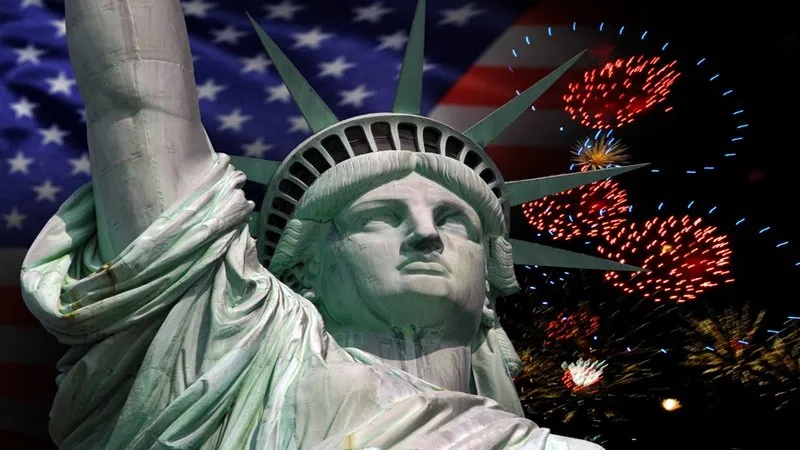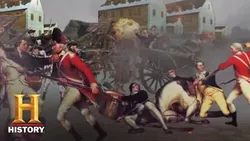
History 104: US History II 
Learn the basics of History 104: US History II ▼
ADVERTISEMENT
Course Feature
![]() Cost:
Cost:
Paid
![]() Provider:
Provider:
ThaiMOOC
![]() Certificate:
Certificate:
Paid Certification
![]() Language:
Language:
English
![]() Start Date:
Start Date:
On-Demand
Course Overview
❗The content presented here is sourced directly from ThaiMOOC platform. For comprehensive course details, including enrollment information, simply click on the 'Go to class' link on our website.
Updated in [May 19th, 2023]
History 104: US History II is an online course designed to provide students with an overview of the history of the United States from the end of the Civil War to the present day. Through engaging lessons and expert instruction, students will gain an understanding of the major events, people, and ideas that have shaped the history of the United States. The course covers topics such as Reconstruction, the Industrial Revolution, World War I, the Great Depression, World War II, the Cold War, and the Civil Rights Movement. Additionally, students will explore the impact of immigration, the rise of the United States as a global superpower, and the changing role of the federal government. Upon completion of the course, students will have a comprehensive understanding of the history of the United States.
[Applications]
The application of History 104: US History II can be seen in many different ways. Students can use the knowledge gained from this course to gain a better understanding of the history of the United States. They can also use the information to gain a better understanding of the current political and social climate in the United States. Additionally, the course can be used to gain a better understanding of the history of other countries and cultures. Finally, the course can be used to gain a better understanding of the history of the world and its impact on the present.
[Career Paths]
1. Historian: Historians research, analyze, interpret, and write about the past. They use a variety of sources, such as documents, artifacts, and oral histories, to gain an understanding of past events and people. Historians often specialize in a particular period or region, and they may work in museums, archives, libraries, or universities. With the increasing availability of digital archives, historians are increasingly able to access and analyze data from a variety of sources.
2. Archivist: Archivists are responsible for preserving and organizing historical documents and artifacts. They may work in museums, libraries, or archives, and they are often responsible for cataloging and preserving documents, photographs, and other materials. Archivists must have a strong understanding of the history of the materials they are working with, as well as the ability to use digital tools to store and organize the materials.
3. Museum Curator: Museum curators are responsible for the care and display of museum collections. They research and acquire artifacts, organize exhibitions, and develop educational programs. They must have a strong understanding of the history of the artifacts they are working with, as well as the ability to use digital tools to store and organize the materials.
4. Public Historian: Public historians work to make history accessible to the public. They may work in museums, libraries, or archives, and they are often responsible for developing educational programs and exhibits. They must have a strong understanding of the history of the materials they are working with, as well as the ability to use digital tools to store and organize the materials. With the increasing availability of digital archives, public historians are increasingly able to access and analyze data from a variety of sources.
[Education Paths]
1. Bachelor of Arts in History: A Bachelor of Arts in History is a four-year degree program that focuses on the study of the past. Students will learn about the development of civilizations, the impact of wars, and the evolution of societies. This degree is ideal for those who want to pursue a career in teaching, research, or public history. Additionally, this degree is becoming increasingly popular due to the growing demand for professionals with a deep understanding of the past.
2. Master of Arts in History: A Master of Arts in History is a two-year degree program that focuses on the study of the past. Students will learn about the development of civilizations, the impact of wars, and the evolution of societies. This degree is ideal for those who want to pursue a career in teaching, research, or public history. Additionally, this degree is becoming increasingly popular due to the growing demand for professionals with a deep understanding of the past.
3. Doctor of Philosophy in History: A Doctor of Philosophy in History is a four-year degree program that focuses on the study of the past. Students will learn about the development of civilizations, the impact of wars, and the evolution of societies. This degree is ideal for those who want to pursue a career in teaching, research, or public history. Additionally, this degree is becoming increasingly popular due to the growing demand for professionals with a deep understanding of the past.
4. Master of Science in Historical Studies: A Master of Science in Historical Studies is a two-year degree program that focuses on the study of the past. Students will learn about the development of civilizations, the impact of wars, and the evolution of societies. This degree is ideal for those who want to pursue a career in teaching, research, or public history. Additionally, this degree is becoming increasingly popular due to the growing demand for professionals with a deep understanding of the past.
Course Provider

Provider ThaiMOOC's Stats at AZClass
Discussion and Reviews
0.0 (Based on 0 reviews)
Explore Similar Online Courses

JavaScript Loops Course

Creative Furniture Upcycling for Beginners

Python for Informatics: Exploring Information

Social Network Analysis

Introduction to Systematic Review and Meta-Analysis

The Analytics Edge

DCO042 - Python For Informatics

Causal Diagrams: Draw Your Assumptions Before Your Conclusions

Whole genome sequencing of bacterial genomes - tools and applications

American History Through Baseball

Abraham Lincoln

America: Our Defining Hours History
 Related Categories
Related Categories
 Popular Providers
Popular Providers
Quiz
 Submitted Sucessfully
Submitted Sucessfully
1. What is the recommended number of semester hours for History 104: US History II?
2. What type of course is History 104: US History II?
3. How many colleges and universities accept History 104: US History II for transfer credit?


Start your review of History 104: US History II